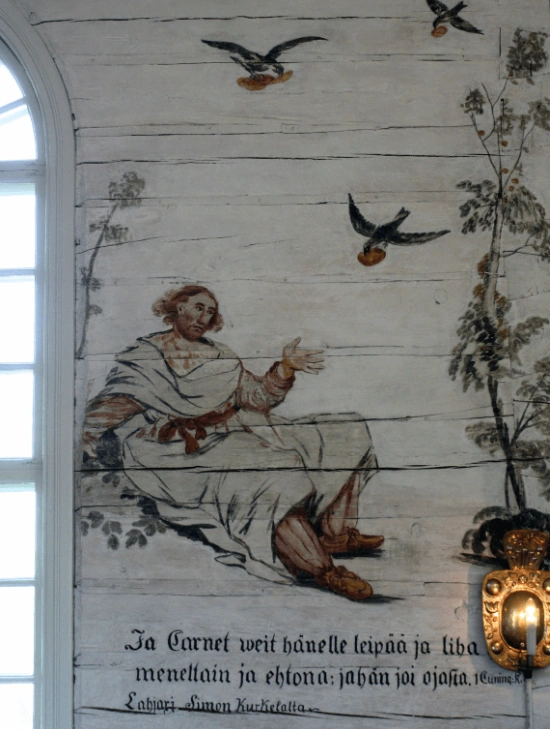552. Verse 7. And the likenesses of the locusts were like unto horses prepared for battle, signifies that when man has become sensual he reasons as if from the understanding of truth. This is evident from the signification of the "locusts" as being the men of the church who have become sensual through falsities that are from evil (of which above, n. 543; also from the signification of "horses prepared for battle," as being reasonings, here as if from the understanding of truth, because it is said that they were "like unto" them. (That "horses" signify the understanding, see above, n. 355, 364; and all understanding is of truth.) And because "battle" signifies in the Word spiritual combat, which is a combat of falsity against truth and of truth against falsity, therefore "horses prepared for battle" signify reasonings, here as if from the understanding of truth, for it is by reasonings that spiritual combats are waged. What now follows, even to verse 12, treats of the sensual man who is in falsities from evil, what is his quality in respect to understanding and will; and he is described by "locusts" and their various appearances; for in the spiritual world all man's affections and thoughts therefrom are represented by various beasts of the earth and by birds, and these are presented to view in such forms as correspond; and the beasts, there represented in accordance with the affections of the spirits from which they are, appear like the beasts in our world, but sometimes with successive change and variety, approaching to forms composed of other beasts, besides also having their heads and bodies clothed and decorated with various insignia. Such have frequently been seen by me; and the qualities of their affections and inclinations were thus made manifest to me. Because affections and thoughts therefrom are represented in the spiritual world by beasts and birds, so "beasts and birds" have a similar signification in the Word.
[2] It has been shown above in n. 543 that sensual men, who are in falsities from evil, are represented and thence signified by "locusts;" of what quality such men are is here described by the various forms and various insignia of the locusts; as that they were "like unto horses prepared for battle;" that "upon their heads were as it were crowns like gold;" that "their faces were as men's faces;" that "they had hair as the hair of women," and "teeth as those of lions;" that they had "breast-plates;" and many other things, all of which are representatives such as exist in the spiritual world corresponding to the falsities from evil, and to the persuasiveness of the sensual man; yet no one can know what these mean without a knowledge of correspondences, neither of the quality of the sensual man, nor of his persuasiveness. The sensual man, who is in falsities from evil, reasons as if from an understanding of truth, because he is in the persuasion that falsity is truth and that evil is good; and so long as he is in that persuasion he can see nothing rationally and intellectually; but whatever he has persuaded himself of, he believes to be a matter of the highest reason and most eminent understanding; for the rational and intellectual in him is closed up, and thus he is in a persuasive belief respecting the things he thinks and speaks. That the sensual man reasons acutely and readily, because his thought is so near his speech as to be almost in it, and because he places all intelligence in discoursing merely from the memory, may be seen in the Arcana Coelestia 195, 196, 5700, 10236.







